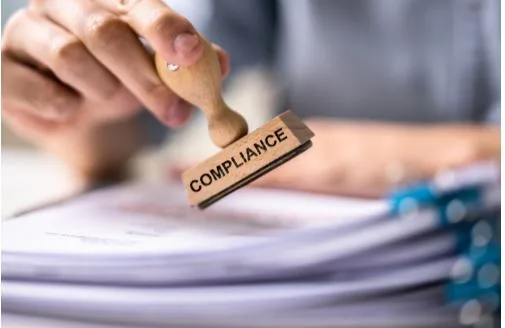Beneficial Ownership Information Reporting: Ensuring Transparency and Compliance
Never has the transparency of company ownership been more important in the global battle against financial crime. Beneficial Ownership Information Reporting (BOI Reporting) is one of the elements of this transparency. The world is moving towards greater attention by regulatory bodies to discover the real owners behind the corporate entities, commonly known as the ultimate beneficial owners (UBOs). This is a crucial step in fighting money laundering, tax evasion and other criminal acts.
This article discusses the significance of BOI Reporting, the changing Beneficial Ownership Reporting Requirements, and how organizations can best manage and report on UBO information to remain compliant and transparent in their organizations.
What Is Beneficial Ownership Information Reporting?
Beneficial ownership information reporting is the process through which companies report on their ultimate beneficial owners, the individuals who ultimately control or benefit the activities of the company. The purpose of this reporting is to give regulatory bodies a clear picture of the actual ownership structure rather than legal ownership.
The necessity of proper BOI Reporting is explained by the fact that a lot of companies have complicated ownership structures that help them hide the true owners of assets or those who exercise power. Transparency in disclosure assists regulators to identify and stop abuse of companies in money laundering, financing of terrorism and other financial crimes.
What are Ultimate Beneficial Owners (UBOs)?
The ultimate beneficial owners are the natural persons having a direct or indirect ownership or control over a substantial proportion of the company shares or voting rights. Although thresholds differ depending on the jurisdiction, UBOs are usually the ones that own 25 percent or more.
UBO information may be difficult to identify as ownership is frequently structured in a multi-layered fashion, using a series of companies or trusts. Nevertheless, proper identification is necessary to meet the beneficial ownership reporting requirements and to make sure that companies are not fronts to illegal operations.
Beneficial Ownership Reporting Requirements: International Developments
Governments across the world have come up with strict regulations to implement beneficial ownership reporting. Most jurisdictions have introduced rules that compel businesses to keep registers of their UBO data and provide such information to national authorities.
As an example, the Fifth Anti-Money Laundering Directive (5AMLD) in the European Union requires member states to establish central registers of beneficial ownership. On the same note, other states like the United States have passed legislation like the Corporate Transparency Act, which mandates companies to report beneficial ownership details to the Financial Crimes Enforcement Network (FinCEN).
These changing beneficial ownership reporting requirements focus on transparency and accountability, and they shift the responsibility on companies to report on accurate and timely information.
The BOI Reporting Value in Compliance and Risk Management
Proper BOI reporting is significant in the compliance strategy of a company. The beneficial ownership information is used by regulatory agencies to:
- Surveil and examine dubious financial transactions
- Impose sanctions and embargo
- Avoid tax evasion and financial fraud
- Encourage corporate governance and transparency
The non-observance of beneficial ownership reporting may lead to serious fines, legal sanctions, and reputational losses. Thus, businesses are required to set up effective internal controls that will gather, confirm, and update UBO data on an ongoing basis.
Best Practices in Reporting Beneficial Ownership
Businesses ought to embrace a number of best practices to achieve regulatory expectations and effective beneficial ownership reporting:
Keep a Current Beneficial Ownership Register
Maintain the company records to be in line with the changes in ownership or control.
Put in Place Powerful Verification Processes
With the assistance of credible sources and verification tools, the identity of UBOs can be verified.
Automate Reporting Process
Use technology to make data collection, verification, and reporting to authorities easier.
Train the Staff about BOI Requirements
Make sure that compliance teams are aware of the significance and peculiarities of beneficial ownership transparency.
Put in place Ongoing Monitoring
The change of ownership should be periodically checked to make sure that reporting requirements are satisfied.
Conclusion
Beneficial Ownership Information Reporting is an essential element of the contemporary corporate transparency and compliance systems. Knowledge and proper reporting of UBO information will help companies comply with the more stringent beneficial ownership reporting requirements, reduce risks, and build trust among regulators and stakeholders.
With the changing regulatory environments, it is not only important to invest in the comprehensive process and technology to manage beneficial ownership reporting but will also help in enhancing the overall integrity of the business environment.




